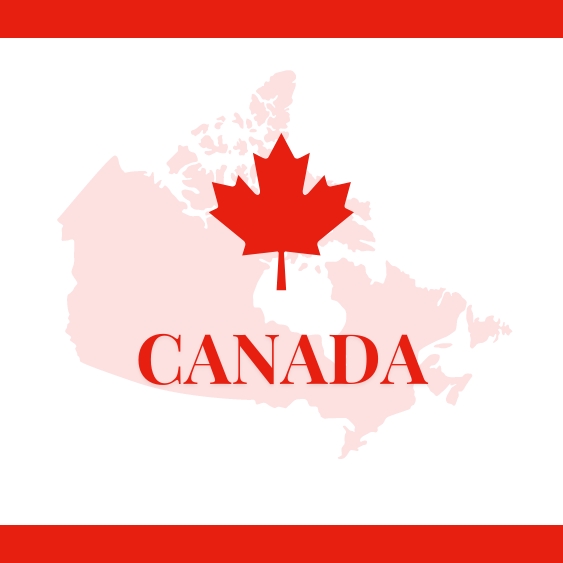
Need More Information
Need More Information
Hotline
+1 (873) 288-6006

Canada
Study in Canada
Study in Canada
Want to study in Canada? We answer all your top questions, including how much it costs to study in Canada, which courses are available and how you can use your Canadian study permit as a pathway to obtain Canadian permanent residence.
Know More
Firstly, Canada’s reputation as a safe and stable country is a significant factor.
Secondly, the high-quality education system. Known for its excellence and diversity, the canadian education is a major draw. Lastly, Canada’s inclusive and tolerant society plays a pivotal role in the decision-making process.
Furthermore, international students are looking toward the future while in Canada. An impressive 72.5% of them plan to apply for a post-graduate work permit, which allows them to gain valuable work experience. Additionally, 60% of these students aspire to make Canada their permanent home, highlighting the country’s attractiveness as a place not only for studying but also for building a promising future. With its welcoming environment, outstanding education system, and diverse opportunities, Canada’s appeal to foreign students has never been stronger.
HGC’s International Student Program can help to guide you through the process. From getting your study permit to permanent residency, we’ll be there every step of the way. With our help, you can transform a Canadian education into Canadian permanent residence.
Every one of our International Student Program clients is paired with an Educational Counsellor who has been trained in the landscape of Canadian higher education and immigration in Canada. With their help, you will submit the strongest possible application.
Certain documents are necessary for the application process. Below is a list of documents that may be requested of you.
Acceptance Letter: A letter sent by the schools or Canadian universities confirming your acceptance into your program of study.
Proof of Financial Support: Proof that you have money to support yourself and any family members coming with you. You must show that you can cover your tuition fees as well as your cost of living (accommodation, food, etc.) for your first year in Canada.
Identity documents: Birth certificate, marriage certificate and passport.
The Canadian study permit is a document that allows you to study at a school in Canada.
You can apply to get one, once you have been accepted to study at a Designated Learning Institution (DLI).There are four stages to obtaining a Canadian study permit:
- Check your eligibility: Ensure you meet the eligibility requirements for a Canadian study permit. You will need:
- an acceptance letter from a DLI,
- proof of financial support,
- supporting documents (varies depending on your countries of citizenship and residence)
- Prepare your application: If you meet all eligibility requirements then you can start to prepare your study permit application. Make sure that you have gathered all documents required for your country. If you don’t show that you meet the requirements, an immigration officer may reject your application. It is a good idea to have a qualified immigration representative review your application before you submit it.
- Submit your study permit application: You have two options when submitting your application:
- Submit an electronic application: Create an account on the Immigration, Refugees and Citizenship Canada (IRCC) website. You can submit an application electronically using scanned or electronic copies of documents.
- Submit a paper-based application: Gather hard copies of your documents and mail them to the Visa Application Centre (VAC) assigned to your country.
- If your study permit is approved, come to Canada!You do not receive your Canadian study permit until you arrive at a Canadian Port of Entry (POE). If your permit is approved, the Canadian government will issue you a Port of Entry Introduction Letter. You must show this letter to the immigration official when you arrive in Canada to get your study permit.
Processing times for study permits vary greatly. The amount of time it takes depends on your country of residence.
The shortest processing time is 1-2 weeks, but some applicants can expect to wait as long as 16 weeks. Processing times depend on the volume of applications received. If you’re applying close to the beginning of Canada’s academic year you may experience delays.
Want faster processing times? Find out if you are eligible for the Study Direct Stream (SDS).
There are certain terms and conditions attached to a Canadian study permit. You must respect these conditions in order to retain all the benefits of your study experience.
- You must be enrolled at a designated learning institution (DLI)
- You must be enrolled as a part-time student, or a full-time student if studying in Quebec
- You must not take any authorized leaves longer than 150 days from your program of study
It is important to understand and respect the terms of your study permit. In doing so, you will get the most out of your study abroad experience in Canada. Students who respect the terms of their study permits also have a better chance of being granted a post-graduate work permit.
The good news is that studying in Canada is affordable. Canadian tuition fees are generally lower than those in Australia, the U.S. and the U.K.
In the 2018/2019 school year, the average annual tuition for an undergraduate international student in Canada was $27,159 CAD. The average tuition for the same year spent at an American university can be compared at $45,950 USD.
There are plenty of scholarship opportunities for international students who want to study in Canada.
The opportunities available to you will depend on your field of study or research and your country of origin.
You can find more information about scholarships that may be available to you by using this database.
A designated learning institution (DLI) is any school that is allowed to admit international students.
All primary and secondary schools in Canada are DLIs and can admit students from foreign countries.
Not all post-secondary schools are DLIs, so you must check the Canadian government’s list of DLIs before applying.
Canada has a reputation for providing accessible, quality education for international students. To understand which program is right for you, first you must understand Canada’s levels of study.
Any educational program beyond the twelfth grade in Canada is considered post-secondary education. There are a few different types of post-secondary education, each with a different purpose.
Certain programs may have specific admissions requirements.
Our mandate is to ensure that you meet the basic admissions requirements for any program that you are applying for
To study at a Canadian school you will need to be proficient in English or French.
Canadian post-secondary schools set their own conditions for language skills of international students. Language skill requirements vary from one school to the next.
While preparing your application, you should research the specific requirements for your program. Some schools even allow you to complete English courses after you begin your studies.
Some international students do not need to provide proof of their language skills. If you are from an English-speaking country or have studied in English, then you may not have to take the IELTS.
Each school set its own language requirements. It is important to check the specific requirements of the school where you want to apply.
Your letter of intent is a critical part of your study permit application. It should explain your plans to study in the country and your goals. You should acknowledge the conditions of being a Canadian study permit-holder.
The purpose of the letter of intent is to assure the Canadian government that you will respect the conditions of your permit. You must agree to leave the country once your permit has expired.
Our international student program offers guidance on writing your best letter of intent!
Each school has their own deadline. You should make sure to submit your application well before this deadline.
Canadian schools are flooded with applications every year. As the deadline approaches, schools become more selective. The more reputable schools are especially competitive, so the earlier you get your application in, the better.
Canada has a selection of post-secondary institutions of different sizes and specialties. Here's a list of five of the country’s most recognized schools, and a description of each to help get you started!
- University of Toronto (UofT)
The University of Toronto is likely one of the Canadian schools you have already heard of! International students choose UofT for its academic excellence and vibrant campus life. 20,000 of them, to be exact. It is also located in the downtown core of the world's most diverse city. - University of British Columbia (UBC)
UBC is North America’s most international university. Thirty percent of UBC’s student population is international—16,188 students from 156 countries. Located on Canada’s beautiful west coast, the university is part of busy Vancouver. UBC is an excellent choice for those interested in living in a city while still having access to nature. Living in Vancouver means easy access to the beautiful outdoors, including forest, ocean and mountains. - McGill University
McGill has an international reputation for excellence. It's no wonder it has a population of more than 12,000 international students. Although it is in the French province of Quebec, McGill is an English university. The city of Montreal is known as one of the best cities to live in as a student. The cost of living is low and it is home to a vibrant artistic and cultural scene. - Université de Montreal (UdeM)
UdeM is one of Canada’s highest ranking universities, and a great option for those interested in studying in French! Located in the city of Montreal, UdeM and its affiliate schools serve 9,500 international students each year. - McMaster University
McMaster is one of the world’s top 100 universities. Located in Hamilton, Ontario, the university is only an hour drive from Toronto. Hamilton is experiencing a significant job boom in the tech sector. This is great news for those interested in working during or after their studies!
nternational students who are married or have kids may wish to bring their family with them.
Canadian visa officers will consider study permit applications which include accompanying family members. You should note that including family members on a study permit application may influence the visa officer’s decision.
If you are approved as a family, your spouse will be able to work full time while in Canada. Any accompanying children will be able to study for free.
If your family does accompany you, your spouse will be eligible for an open work permit, authorizing them to work full-time in Canada while you are studying.
Studying in Quebec gives you the option to study in English, French, or both. However, Quebec student visa requirements are a little different from the rest of Canada.
The Student Direct Stream (SDS) is a program introduced by the Canadian government to expedite the study permit application process for international students from certain countries.
Established with the aim of providing a faster and more streamlined application process, the SDS program prioritizes applications for study permits from eligible students.
o qualify for SDS, applicants must meet specific criteria, including being enrolled in a designated learning institution, providing proof of language proficiency, and demonstrating the financial ability to cover tuition and living expenses.
All international students in Canada must have healthcare coverage.
Certain provinces allow international students access to Canada’s public healthcare system. Students in provinces that do not offer health coverage must buy private health insurance. All Canadian schools offer health insurance plans for international students.
